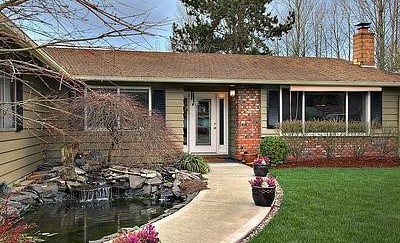Definition of an adult family home
Adult Family Homes (AFH) are residential homes licensed by a state authority (DSHS in Washington State) to provide personal care for up to 6 non-related individuals (commonly called “residents”). They provide personal care and supervision, medication assistance, and necessary help with activities of daily living like grooming, bathing, dressing, and incontinence care. Social activities are offered to varying degrees. Room and board, laundry, and other services are common.
Adult Family Homes play a vital role in Washington State’s long-term care, providing round-the-clock care to more than 16,000 seniors, and relieving a tremendous burden for thousands of families. They save WA State nearly $250 million per year in Medicaid care costs.
History of adult family homes in Washington state
Adult family homes have been around in many states for a long time; they are also known as Adult Care Homes, Adult Foster Homes, and Residential Care Homes. Although there are some differences in how these names are used, Adult Family Homes in Washington state are specifically licensed by the department of Social and Health Services (DSHS) to care for frail seniors or developmentally disabled persons (DD).
DSHS has used AFHs for many years as the least restrictive, and least expensive, place to care for the aging population.
Washington state first introduced regulations around 1986 and started licensing adult family homes in 1989. Today, Washington state is considered a leader in senior care, having one of the most robust and progressive long-term care system in the nation.
Choice & Variety
Adult Family Homes come in many colors and offer one of the best long-term care option for our aging population. Some are owned by registered or licensed nurses (RN’s or LPN’s), certified nursing assistants (CNA’s or NA-C’s), while others are started by individuals who first care for a parent then decide to continue helping other seniors.
The greatest appeal for most seniors and their family is a familiar, real home setting that is comfortable and secure. The staff-to-resident ratio is 1 staff to 6 residents at minimum, as compared to nursing homes or assisted living facilities where one caregiver may routinely be assigned 6 to 14 residents, and often times more.
Settings vary from very luxurious million dollar homes with water views, to smaller run-of-the-mill houses. Homes offer private rooms, rooms with baths, or shared rooms. Some homes offer larger spaces with more privacy but they may only be accessible by stairs; such space are most appropriate for residents who are ambulatory and more physically able. Don’t assume that a “fancy” AFH or high cost reflects greater skills, abilities, or quality of care.
King County, followed by Snohomish County, has the highest concentration of ASH’s in Washington state.
Levels of care offered
As long as state requirements are met (WAC 388-76), providers can offer varying levels of care based on their professional skills and qualifications, for example nursing care. However, all adult family homes provide standard personal care such as bathing, grooming, dressing, transering and mobility assistance, and medication assistance.
Homes that are owned and operated by nurses often provide care to higher acuity residents. But there are plenty of ‘average-looking’ homes owned by excellent caregivers who do provide higher levels of care.
You must inquire as to what type of care a provider offers, and what care is not available, such as hospice care, wound care, insulin-dependent clients, awake night care, or two-person transfers, to name a few.
It’s common for a provider to coordinate skilled oversight with Visiting Nurse Services, Occupational Therapy, Physical Therapy, or hospice care providers. Mental Health Therapy can be also be brought into the home when indicated. If not done automatically, be sure to bring it up!
Washington has 3 specialty certifications which are noted on the provider’s license: Mental Health, Dementia, or Developmental Disabilities.
Limitation
Because adult family homes are a small home setting, residents who are noisy, disruptive, or aggressive may not be appropriate for most homes, but some providers can accommodate such resident if they specialize in that type of care. If a resident poses a safety risk to himself or others, s/he is usually not a good candidate for the AFH setting.
Generally, residents in adult family homes should be in stable and predictable medical condition. Residents with more complex medical issues should be admitted to homes owned and operated by RN or LPN providers who have the necessary training, experience, and staff to deal with more acute and complicated medical issues.
